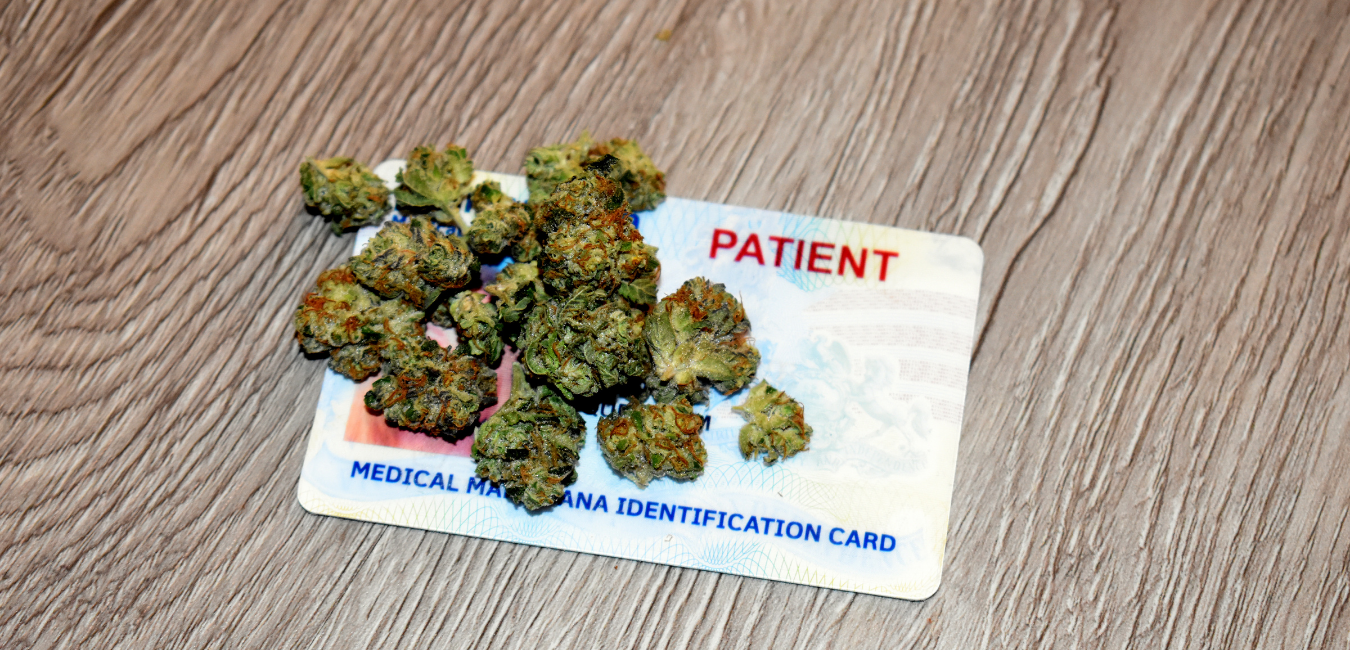
Should I get a Medical marijuana card?
As of April 2021, over 40% of Americans live in one of the 15 states where adults can legally buy cannabis for recreational use. Regardless of whether you live in a state where dispensaries are already open, or you’re patiently waiting to buy your first legal eighth, it may still be worth the effort to attain a medical marijuana card.
Even in fully legal states saturated with adult use dispensaries, it can still pay to get a medical marijuana card — although it is not for everyone. The best (but not only) reason to have a medical card is the ability to buy cannabis in states where it’s only legal medically. There is also the prospect of saving hundreds of dollars a year.
Of course, this is only relevant for those who qualify as medical cannabis patients.
Here are all the considerations.
- Tax breaks and cost savings
- Higher purchase limits
- Buy cannabis in other states
- Grow your own
- Different products available
- Access to more healthcare professionals
Tax Cost Savings
In adult use states, consumers either pay an excise or sales tax on their purchases. In many states, consumers pay both. The excise tax amount varies widely from state to state: in Illinois, the tax is 10% while in Nevada and Colorado, the tax stands at 15%. Sales tax ranges are very different. In Maine, for instance, there is a 10% sales tax on cannabis purchases, while in Oregon it’s 17%, and Washington is the winner of the sales tax Olympics at 37%.
In Colorado, the 15% excise tax and 15% sales tax on cannabis purchases, leads to a whopping 30% for each purchase. For medical cannabis patients, most states still affix a sales tax on products but do not require an excise tax, which can be a considerable cost savings.
Every consumer should compare the amount of money saved based on the amount the consumer purchases each year to the annual cost of getting and renewing a medical marijuana card. The card cost includes doctor visits and how much sales and excise tax otherwise paid as an adult use consumer.
As an example, a Washington state resident who purchases a $200 ounce of cannabis per month could expect to pay $888 each year in combined sales and excise tax on top of the $2,400 purchase cost, or a total of $3,288. With a medical card (and a $100 doctor visit each year), the same resident would only pay $2,500, a savings of $788 each year.
The cost savings will vary from state to state and depend on the amount of tax exemption for registering and renewing as a medical patient. A big factor is also how much cannabis is purchased each year. In California, as an example, many patients find that the time and financial costs of getting a medical marijuana card are not worth it.
Higher Purchase and Possession Limits
There are limits on the amount of cannabis an adult can purchase or possess in adult use cannabis states, while medical patients typically have higher limits set. For instance, in Colorado, medical patients can possess up to two ounces of cannabis at a time, while adult use consumers are limited to only one ounce or less. In California, there are no set limits on possession of medical cannabis patients, while adult use consumers can only possess up to one ounce.
Purchase limits can also vary. In Oregon, adult use consumers can purchase daily up to one ounce of flower, 5 grams of extracts/concentrate, or 16 ounces of cannabinoid product in solid form. Medical cannabis patients are allowed to purchase up to 8 ounces of usable cannabis per day.
Reciprocity With Non-legal states
Many medical-only states honor out-of-state medical marijuana licenses.
Medical cannabis users who live in an adult use state may be able to buy whatever products they need at an affordable price without having a medical card. But what if travel for work, vacation, or a short-term relocation is needed?
Many states without legal recreational cannabis do have medical cannabis dispensaries who honor out-of-state medical cannabis licenses, known as reciprocity.
For medical cannabis patients, this means knowing that you won’t have to go without your medicine just because you’re temporarily in a non-adult use state.
The following states honor reciprocity:
- Arkansas
- Hawaii
- Maine
- Michigan
- Nevada
- New Hampshire
- New Mexico
- Oregon
- Puerto Rico
- Rhode Island
- Virginia
Cannabis cultivation rights
In some adult use cannabis states, there are less restrictive rules regarding how much cannabis someone can cultivate for personal use. This includes the ability to your own at all.
In Maine, residents can grow three or less plants, while medical patients can grow up to six. In Oregon, residents can grow up to four plants, while patients can grow six. In Washington it’s not legal to grow cannabis for recreational use, though patients can cultivate up to six plants.
Medical cannabis users who want to grow their own marijuana — especially in larger quantities — should consider applying for a card.
Product Availability
Each legal state has limits on the types and potency of cannabis products that consumers may purchase unless they are medical patients. As an example, compare Nevada and Oregon.
- In Nevada, edibles and concentrates are limited to no more than 100 milligrams of THC per container, while for medical patients the limit is 1,000 milligrams.
- In Oregon, recreational consumers can purchase edibles that contain up to 50 milligrams of THC, while medical patients can purchase edibles that have up to 100 grams per container. In addition, the tinctures available to medical patients can contain up to 4,000 milligrams of THC per container, as opposed to 1,000 milligrams for adult use consumers.
Many states with both recreational and medical cannabis programs also have dispensaries that are solely for medical patients. The purpose is to allow medical patients to obtain products without competing with recreational customers. Even if there are no dedicated medical dispensaries, many recreational dispensaries that allow medical patients to skip ahead of recreational customers.
Access to Physicians and Pharmacists
With a medical cannabis license, patients can access medical-only dispensaries and receive guidance from on-site staff with medical or pharmacological training. These health care professionals typically have more expertise on cannabis — and its potential side effects and drug interactions — than the average budtender at a dispensary.
This enables better recommendations for cannabis products and dosing and can also help the patient avoid any potential drug interactions.
While it may seem cannabis has become mainstream, there still may be a stigma attached to recreational cannabis consumers. Having a medical cannabis card can send the message that you consume for more legitimate reasons if you’re concerned about appearances.
Aspen Cannabis Insurance is in Denver, CO, and services clients nationwide. We are a family run business working with multiple insurance carriers to offer our customers the coverage they need at the lowest possible cost. We offer a wide range of personal, commercial, and professional insurance to residential and commercial customers enabling the cheapest rates available. Call to speak to one of our insurance professionals and see how painless insurance shopping can be.
